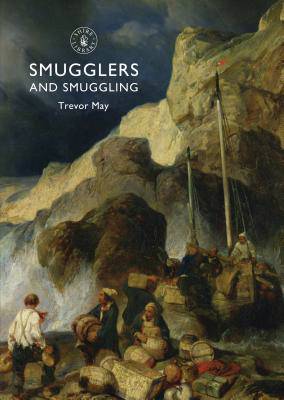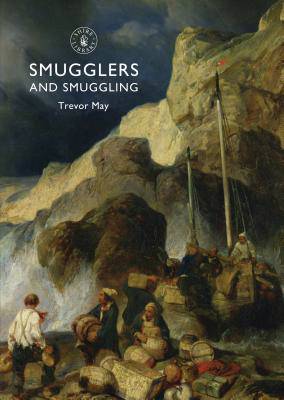
- Afhalen na 1 uur in een winkel met voorraad
- Gratis thuislevering in België vanaf € 30
- Ruim aanbod met 7 miljoen producten
- Afhalen na 1 uur in een winkel met voorraad
- Gratis thuislevering in België vanaf € 30
- Ruim aanbod met 7 miljoen producten
Zoeken
Omschrijving
Smuggling was rife in Britain between the seventeenth century and the mid-nineteenth century, and smugglers have come to be highly romanticized as cheeky rogues, cunningly evading heavy taxes imposed by an overbearing government. In reality, many smugglers were prepared to use excessive force as often as they used cunning, and the officers whose job it was to apprehend them were regularly intimidated into inaction. The whole social hierarchy was riddled with those willing or compelled to help smugglers, and many a fortune was built on this illicit trade. Trevor May explains who the smugglers were, what motivated them, where they operated, and how items ranging from barrels of brandy to boxes of tea would surreptitiously be moved inland under the noses of, and sometimes even in collusion with, the authorities.
Specificaties
Betrokkenen
- Auteur(s):
- Uitgeverij:
Inhoud
- Aantal bladzijden:
- 72
- Taal:
- Engels
- Reeks:
Eigenschappen
- Productcode (EAN):
- 9780747812074
- Verschijningsdatum:
- 19/08/2014
- Uitvoering:
- Paperback
- Formaat:
- Trade paperback (VS)
- Afmetingen:
- 150 mm x 211 mm
- Gewicht:
- 163 g

Alleen bij Standaard Boekhandel
+ 26 punten op je klantenkaart van Standaard Boekhandel
Beoordelingen
We publiceren alleen reviews die voldoen aan de voorwaarden voor reviews. Bekijk onze voorwaarden voor reviews.











